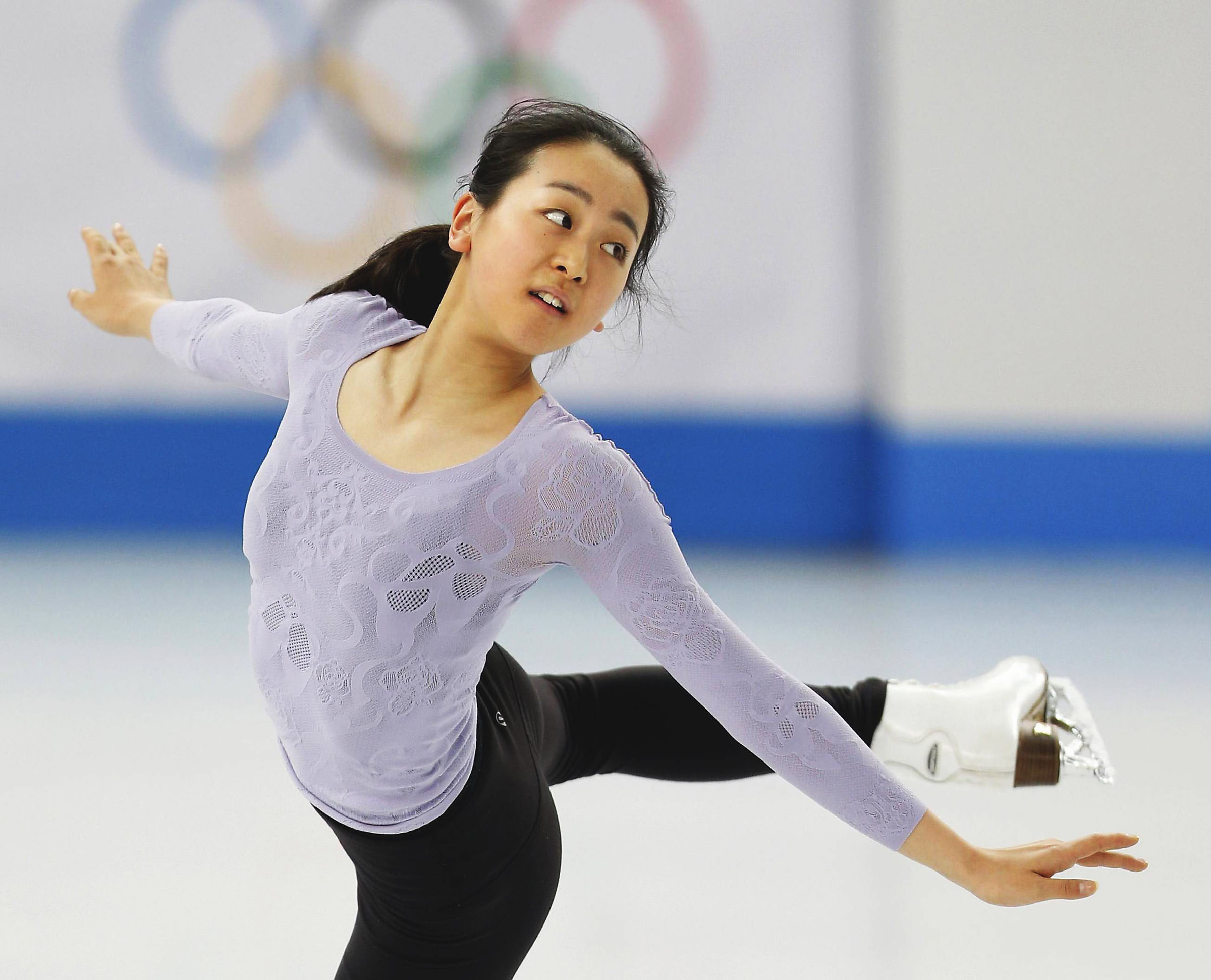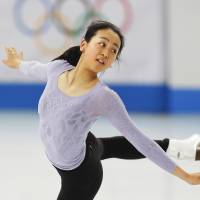Three-time world champion Mao Asada's inclusion in the recently released assignments for the Grand Prix season might have come as a surprise to some, especially after it seemed she would take a more deliberate pace with her comeback, but not Ice Time.
Why?
Because it was about as predictable as the sun rising in the morning.
The golden goose has returned, so now it's time for everybody to cash in. That is certainly the way it appears.
Just weeks after agent Mariko Wada told Japanese media it was unlikely that Mao would enter the GP series after taking a year off from competition, the tables were suddenly turned and now Mao is slated to return to the ice at the Cup of China (Nov. 6-8) in Beijing.
I don't think you have to be a genius to figure out what happened over the course of the past few weeks.
It's called pressure, and you better believe it was applied.
There is little doubt that the influence of the Japan Skating Federation, TV and sponsors had an impact on Mao participating in the GP series. They all stand to benefit by her early appearance.
While Mao's quick comeback is great for fans and the media, the financial benefit to the aforementioned trio will be exponential. It's no secret that when Mao skates TV ratings, the price for commercial advertising buys and overall exposure for the sport all rise significantly.
"It's a natural decision," Wada wrote in an email to Ice Time when asked about the move. "She might feel confidence through daily practice. We'll see."
There are questions that must be asked about Mao, however, in light of this decision.
She will be rejuvenated physically after the long break from the grind of training, but will she be mentally ready for competition again?
I can recall tennis legend John McEnroe telling me years ago about the mental toll having to get up for matches took on him late in his career.
Mao's battles with Yuna Kim were legendary, but will she have the same motivation against younger rivals?
How about the triple axel?
Will it still be a part of Mao's programs?
In addition to the Cup of China, Mao is on the roster for the NHK Trophy (Nov. 27-29) in Nagano. Mao's primary competition in Beijing is likely to come from compatriot Rika Hongo, Russia's Elena Radionova (the bronze medalist at this year's worlds) and China's own Li Zijun.
Mao will face a more formidable lineup at Big Hat, with national champion and world silver medalist Satoko Miyahara, Russia's Anna Pogorilaya, Li, and Americans Ashley Wagner and Mirai Nagasu all scheduled to take part.
Japan has one spot for the NHK Trophy that has yet to be assigned.
Miyahara will start her GP season at Skate America (Oct. 23-25) in Milwaukee. Miyahara will be joined there by compatriots Haruka Imai and Miyu Nakashio and will be going up against Russia's Julia Lipnitskaia and American Gracie Gold.
Lipnitskaia struggled with poor results after finishing fifth at last season's GP Final and did not qualify for the world championships, where Gold finished fourth.
World champion Elizaveta Tuktamysheva is not scheduled to face Mao before the Grand Prix Final (Dec. 10-13 in Barcelona, Spain), as the Russian star will compete in the Skate Canada (Oct. 30-Nov. 1) in Lethbridge, Alberta, and the Trophee Bompard (Nov. 13-15) in Bordeaux, France.
Hongo, who was second behind Miyahara at nationals, will also skate at the Cup of Russia (Nov. 20-22) in Moscow, where Riona Kato will make her season debut.
Kanako Murakami will meet Tuktamysheva twice, having been assigned Skate Canada and the Trophee Bompard. Murakami is still looking for her elusive first senior world or Olympic medal, having placed seventh at the worlds in Shanghai last season.
Yuka Nagai, who was fourth at the senior nationals last season, will be teamed with Murakami at Skate Canada and also pull on the boots at the Cup of Russia.
Imai, Nakashio and Kato are the likely candidates to fill Japan's remaining slot at the NHK Trophy, depending on their results.
Nagasu, the former U.S. champion, who has been inconsistent the past few seasons, is only down for the NHK Trophy at this point.
Young phenom Wakaba Higuchi, who had a stunning third-place finish at the senior nationals last season at 13, is still not eligible to compete on the senior GP circuit yet. She will skate in Junior Grand Prix events this season.
On the men's side, Olympic champion Yuzuru Hanyu has been tapped for Skate Canada and the NHK Trophy. Hanyu, who narrowly missed out on winning his second straight world title last season despite suffering through a calamitous campaign which included a collision, bladder surgery and an ankle injury, will be up against it right away this season.
Three-time world champion Patrick Chan, who took last season off from competition to rest, makes his comeback on home ice at Skate Canada hoping to avenge his loss to Hanyu at the 2014 Sochi Games. Chan's second assignment will be at the Trophee Bompard.
World champion Javier Fernandez won't clash with training partner Hanyu until the GP Final at the earliest. Fernandez is in for the Cup of China and the Cup of Russia.
World junior champion Shoma Uno will make his senior GP debut at Skate America and also take the ice at the Trophee Bompard, while veteran Takahiko Kozuka is entered for the Cup of China and the Cup of Russia.
Daisuke Murakami, the surprise winner at last season's NHK Trophy in Osaka, will battle at Skate Canada and the Trophee Bompard, while Takahito Mura is penciled in for Skate America and the NHK Trophy.
Japan has also not decided on its third competitor for the men at the NHK Trophy.
Japan does not have an entry in the pairs this season. Russia's Yuko Kawaguchi and Alexander Smirnov are entered in the Cup of China and the Cup of Russia.
Ice dancers Emi Hirai and Marien De La Asuncion will represent the Hinomaru at the NHK Trophy in their lone GP assignment.
The world championships (March 28-April 3) will be held in Boston this season, while the world juniors (March 14-20) are in Debrecen, Hungary.
The Japan nationals are set for Sapporo (Dec. 24-27).




